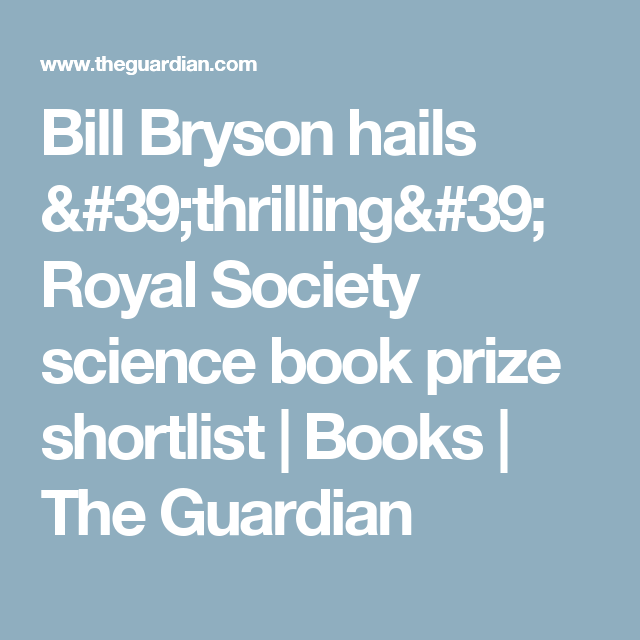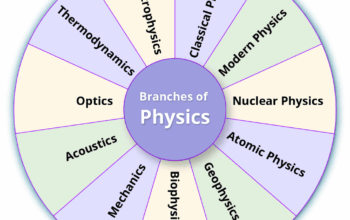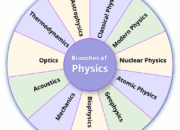In the arena of popular science literature, few figures manage to bridge the seemingly yawning chasm between dry empirical analysis and engaging narrative as effectively as Bill Bryson. His recent triumph in securing the prestigious Royal Society science book prize underscores his unique ability to transform complex scientific principles into accessible, entertaining prose. This accolade not only celebrates Bryson’s literary prowess but also signifies a broader cultural shift towards an appreciation for integrated storytelling in the scientific discourse. The interplay between scientific inquiry and narrative elegance not only enriches the reader’s understanding but also kindles an enduring curiosity about the natural world.
To comprehend the magnitude of this achievement, one must consider Bryson’s oeuvre, which deftly embodies an enlightening blend of humor and informative content. His proclivity for unpacking convoluted scientific themes—such as cosmology, biology, and the intricacies of human existence—reveals a commitment to enhancing public engagement with science. This recent accolade thus serves as both a confirmation of his unique approach and a clarion call for future writers to adopt a similar methodology, utilizing narrative depth to navigate the multifaceted realms of scientific thought.
In the context of Bryson’s work, the convergence of storytelling and scientific exposition promises a formidable shift in perspective. While traditional academic literature often delves into specialized jargon, estranging general audiences, Bryson subverts this norm by employing a colloquial style replete with wit and anecdotal richness. Such a technique does not merely entertain; it elucidates. The inflection of humor into dense scientific material invites readers to engage with topics that might otherwise appear daunting or detached.
At the crux of this narrative strategy is the cultivation of curiosity—a vital component of scientific inquiry. Bryson’s writings often initiate a dialogue between reader and text, prompting inquiries that extend beyond the page. For instance, consider his exploration of the universe’s origins. Rather than presenting the Big Bang theory as a mere sequence of events and data points, Bryson contextualizes it within the vast tapestry of cosmic history. This approach does not only illuminate the facts; it evokes a sense of wonderment, compelling readers to ponder their existential place in the cosmos.
The intrinsic value of Bryson’s storytelling lies in the accessibility of content that might otherwise be relegated to the ivory towers of academia. By demystifying intricate theories and processes—such as the convoluted mechanisms of evolution or the enigmatic properties of matter—he dismantles barriers that often inhibit public discourse surrounding scientific subjects. This democratization of knowledge imbues readers with agency; they are not merely passive recipients of information but active participants in an ongoing exploration of scientific realities.
Bryson’s narratives further serve the purpose of bridging generational gaps in science education. His work resonates with a diverse audience, from the scientifically literate to the layperson, fostering intergenerational dialogue about pressing scientific issues. This inclusivity has profound implications for societal understanding of contemporary challenges, such as climate change and public health crises. The ability to frame these subjects within relatable contexts transforms them into focal points of discussion, galvanizing community engagement and advocacy.
Moreover, Bryson’s deft handling of scientific topics also extends into the realm of ethical considerations surrounding research and inquiry. In an age where the implications of scientific advancements—such as genetic engineering or artificial intelligence—remain contentious, Bryson’s narratives often prompt deeper contemplation of moral dilemmas. By juxtaposing scientific progress with its potential consequences, he invites readers to sharpen their critical faculties while reflecting on the responsibility that accompanies knowledge.
However, it is essential to recognize that while Bryson’s style is decidedly engaging, the substance of his work is grounded in thorough research. He meticulously gathers information from credible sources, ensuring that the narratives he weaves are not only entertaining but also factually robust. This commitment to accuracy reinforces the trust readers place in him as a conduit for understanding complex scientific concepts. The seamless integration of thorough research and storytelling demonstrates the potential for writers to transcend disciplinary boundaries and foster a more nuanced appreciation of science.
As we consider the implications of Bryson’s recent accolade, we must acknowledge the broader cultural movement towards embracing hybrid genres within literature. His recognition signals a growing recognition of the importance of narrative in elucidating scientific discourse, suggesting a paradigm shift that challenges existing literary conventions. Through this lens, we can begin to envision a future where popular science literature is not an afterthought but a central facet of scientific communication, enhancing public engagement and understanding.
In conclusion, Bill Bryson’s recent triumph at the Royal Society science book prize marks a pivotal moment in the intersection of science and literature. His unique ability to engage readers through relatable narratives imbued with scientific integrity represents a promising shift in perspectives. As the world grapples with increasingly complex scientific issues, Bryson’s work illuminates a path forward—one that champions curiosity, fosters dialogue, and ultimately enhances societal engagement with the scientific endeavors that define our age. The future beckons for more voices to follow in Bryson’s path, employing storytelling as a vehicle for enlightenment and exploration in the vast landscape of scientific inquiry.










